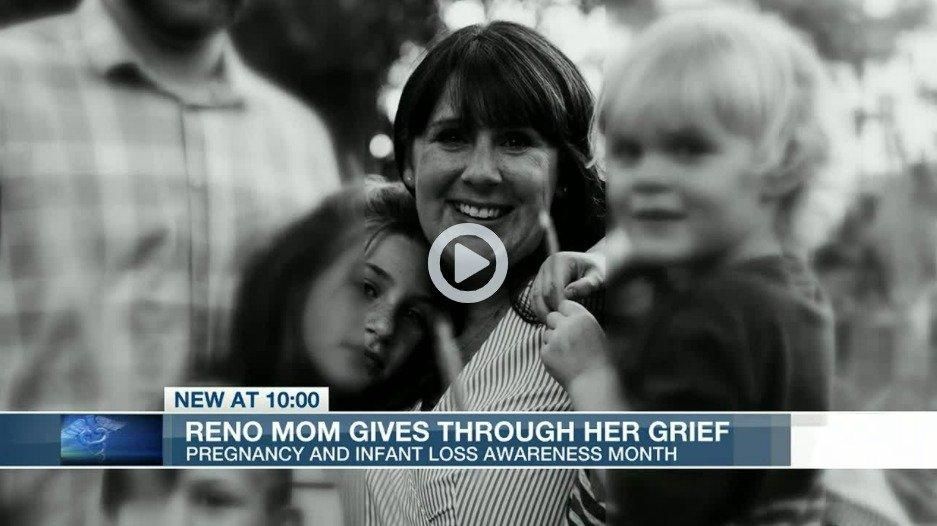Pregnancy and infant loss: Reno mom helps parents who have experienced a similar pain

RENO, Nev. (KOLO) – The loss of a baby continues to be a reality that impacts many families.
While statistics indicate one in four women have experienced a miscarriage, the grief is not often discussed or acknowledged.
In the third trimester of her second pregnancy, Kat Geiger received the news her baby boy London had a life-threatening condition.
“My heart just sunk and I felt a million miles away from everybody,” said Geiger. “Even when my husband was in the other room.”
Although she tried to still have a healthy pregnancy by researching and having a healthier diet, her baby’s heart stopped beating.
“I went through a full labor and delivery process and it was intense and difficult,” said Geiger. “They say that it’s better if you can hold them and look at them when you deliver a baby stillborn, but it was just too hard.”
A few days after leaving the hospital, she went back to say goodbye to her baby.
“I treasure that moment of goodbye,” said Geiger while putting her hands on her chest. “Because no matter how short his little life was, for me I was his mom.”
Geiger says the fear of it happening again, made her obsessed with finding the answer to why this happened.
She eventually sought help and after some healing, she founded Thrive Wellness in Reno.
“I wanted to help people who go through that loss experience and who struggle with eating. I wanted both of these things because it is so lonely,” said Geiger.
Thrive Wellness offers an outpatient perinatal mental health program and a free loss and grief support group.
“It becomes this healing community and that’s where healing is at in our community. It’s not just about individual therapy, it’s not just about family therapy or medication. It’s about making a real lasting community,” said Geiger.
A stillbirth is defined as the loss of a baby before the 20th week of pregnancy and according to the CDC about 24,000 babies are stillborn in the United States.
“Although Gieger’s loss was in 2008, it still feels like it was yesterday, but she says that is her grief that allows London’s memory to remain alive.
“There is help if you are struggling, do not hesitate to reach out, what do you have to lose?,” said Geiger.
Another local resource for families who have lost a baby is the nonprofit Pregnancy & Infant Loss Support Organization of the Sierras or PILSOS.
To get in contact with them call 775-393-9050 or email: questions@pilsos.org.
Copyright 2021 KOLO. All rights reserved.
The post Pregnancy and infant loss: Reno mom helps parents who have experienced a similar pain first appeared on Thrive Wellness.








